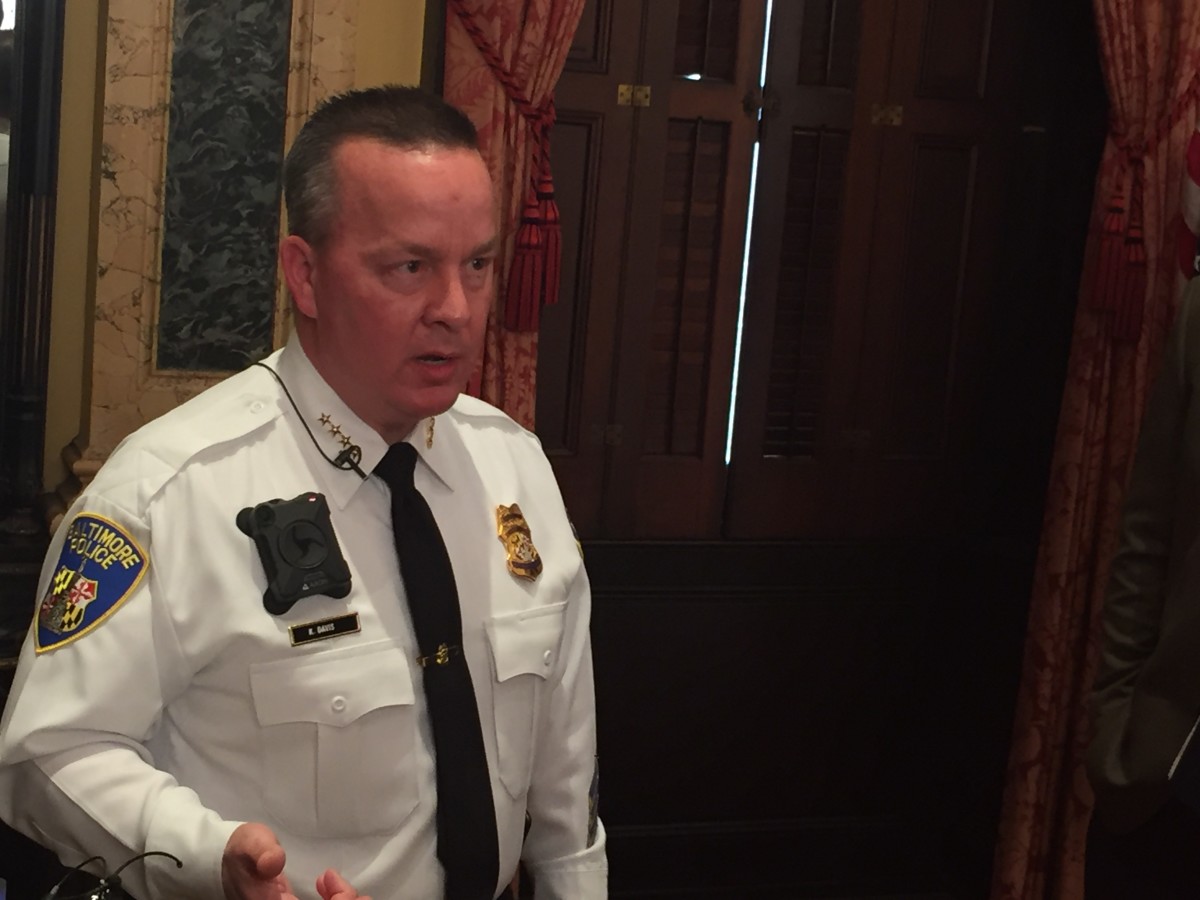When Baltimore police introduced body cameras for the department last year, city leaders said it was a move toward transparency in a department with a history of abuses.
A year later, a pair of videos that were released by the public defender’s office in the last few weeks are showing incidents that otherwise would’ve gone unseen. Both sets of footage recorded by police cameras “depict multiple officers working together to manufacture evidence,” the public defender’s office stated. As the mayor looks to expand the use of technology in the police department, they provide a look at one of the new tools that is being rolled out in departments around the country is playing out.
One video released in late July shows a 2016 incident in which an officer is shown placing a bag of pills among debris in an alley. He then walks out to the street, and returns to the alley to recover the bag, the Baltimore Sun reported. The officer activated his body camera when he returned to the street, but it was recording 30 seconds prior because of automatic recording functions on the cameras.
A second series of videos released last week show an officer searching a car and finding drugs that were placed there by another officer. A search of the car 30 minutes prior to that turned up nothing, CNN reported.
The videos raised plenty of questions and already had consequences, as the Baltimore City State’s Attorney’s office dropped charges in 41 cases that were handled by the officers linked to the first videos, as well as the two that were connected to the footage itself.
The police department leadership, however, urged the public not to jump to conclusions in both cases. Police Commissioner Kevin Davis said officers were suspended, but the investigation into the videos is still ongoing. He also raised the idea that the videos could show the officers “re-creating” recoveries of drug evidence, rather than planting it to set up the victms. The department promptly put out a notice to officers telling them not to do that, the Sun reported.
To ACLU of Maryland Senior Staff Attorney David Rocah, however, that’s not enough. Even if they are staging the investigation and not planting drugs, it is still “both a violation of BPD policies and of at least three different criminal statutes,” he said in a post by the organization.
Rocah was on a task force that created recommendations to the mayor before the body camera program was created. He said the group made recommendations about the issue of officers manipulating the records. The latest videos show it continues to be an issue, he said.
“The existence of officer control over activation is a central reason for public mistrust of body camera programs, and addressing it through good policy and robust enforcement is absolutely critical to ensuring that these programs have public trust and legitimacy,” he said.
Join the conversation!
Find news, events, jobs and people who share your interests on Technical.ly's open community Slack

Baltimore daily roundup: B-360's policy moves; a foundation's fight for financial inclusion; Digital Navigator training

Baltimore daily roundup: Johns Hopkins dedicates The Pava Center; Q1's VC outlook; Cal Ripken inaugurates youth STEM center

Baltimore daily roundup: Scenes from an epic Sneaker Ball; Backpack Healthcare in Google AI accelerator; local tech figures' podcast


